By early June 1899, the Philippine-American War, also called the Philippine Insurrection, had pitted the U.S. Army against the formerly allied Filipino forces of Emilio Aguinald for over four months. The rebellion would continue through the end of the century until officially terminated in July 1902. The settlement at the end of the Spanish-American War included Spain ceding of the Philippines to the United States for $20 million. During the war, the United States and Filipino forces had allied against Spain; the Philippine Army controlled all areas except Manila. Communications were positive between Admiral George Dewey (U.S. Navy's Asiatic Squadron commander) and Emilio Aguinaldo, President and founding father of the First Philippine Republic.
The Spaniards chose to conditionally surrender to the Americans; a mock-exercise was arranged to ensure Filipino forces would not be present in Manila. This was interpreted as an act of colonial aggression, which sparked Filipino insurgency. In the ensuing Insurrection, two of the Filipino ethnic groups that played a prominent part in this conflict were the Macabebes Scouts and the Moro tribes.
The town and established kingdom of Macabebe in the Pampanga Province produced an inordinate number of volunteer soldiers, Voluntarios de Macabebe, who allied with the United States. The utilization of the friendly native forces was a "divide and rule" strategy used by both Spain and the U.S. to prevent unity amongst Filipinos, . For three hundred years, the Macabebes served in the military supporting the Spanish rule, even overseas. Thus, they enjoyed privileges not afforded to other Filipinos which caused a rift in tribal entities. In June 1898, the town of Macabebe, was abandoned by Spanish troops and was overrun by revolutionaries who fought against Spanish colonialism. The town was plundered and burned and Macabebe soldiers were beheaded. In response the Macabebes joined American forces as civilian employees of the Quartermaster Department, after approval of Lieutenant Matthew Batson's plans to recruit 92 Macabebes as scouts. BG Samuel B.M. Young October 16, 1899: "Lieut Batson requests authority to recruit a regiment of Macabebes....I have full faith in the loyalty and efficiency of the Macabebes as soldiers." The armed scouts protected their own provinces against insurgency in the absence of U.S. forces. Several battles in Luzon pitted U. S. and Macabebes successfully against the revolutionaries.
Emilio Aguinaldo was captured on March 21, 1901, falling for Colonel Fred Funston's plot with Macabebes posing as Aguinaldo's revolutionary reinforcements with US captives in tow (Palanan, Isabella Province). "In this, the last great battle of the Philippines, Colonel Funston again proved himself a man absolutely without fear. He performed what General [Arthur] MacArthur said was the most brilliant and daring achievement of the war, and won a victory unparalleled in this history of American arms."
Another achievement of the Macabebes was their role in the defeat of the Moro Rebellion. The Moro tribes occupied southern territories comprising over 95 occupied islands in Luzon, Visayas, and Mindanao. The Moros were expert in guerilla warfare, and known to be the fiercest of all Philippine inhabitants with a tradition of jihad against anyone trying to rule them. The Moros fought with any weapon available - flintlocks, Mausers, Krags, kris, spears, and bolo knives. Relations between Moros and Americans were positive initially, but they eventually deteriorated, and several more skirmishes ensued. Documented accounts describe the Moros as being equipped only with spears and knives which were ineffective against the modern weapons of the Americans. The absence of Moro possession of firearms was due to the successful confiscation of arms by the Macabebe Scouts during previous periods of peace, a task only possible by groups who would not stir ethnic rivalries and had knowledge of the local geography. "...Capt. Batson had told the men that he would publish each month the names of the men who had captured guns or bolos from the insurrectos."
After the war, the Macabebe scouts, known for efficiency, loyalty, and discipline, would be converted into the newly officially recognized Philippine Scouts, part of the regular U.S. Army. The Philippine Scouts continued to serve with great distinction right into World War II.
Related Links:
A Working Bibliography of MHI Sources: Philippine Insurrection
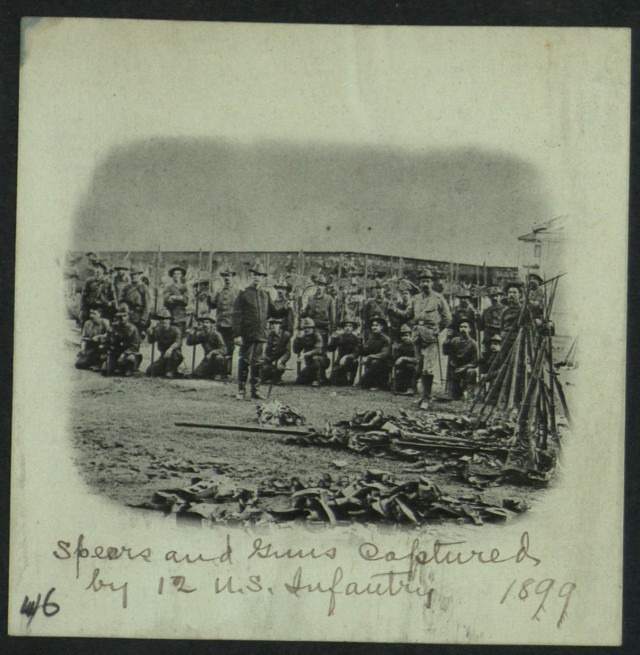
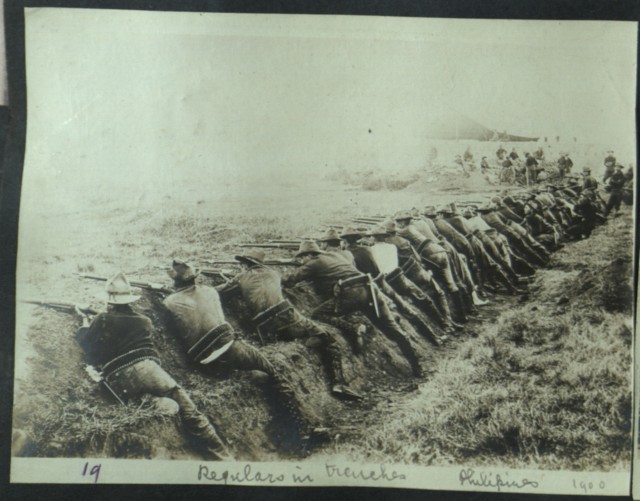

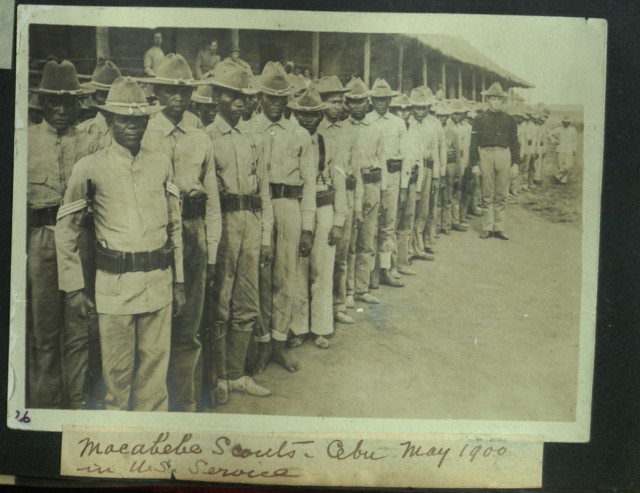
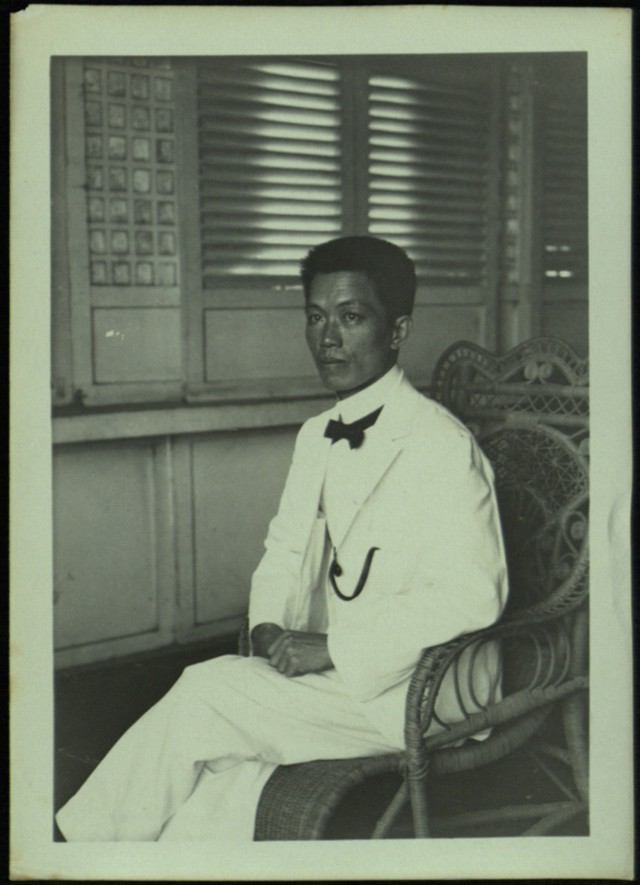

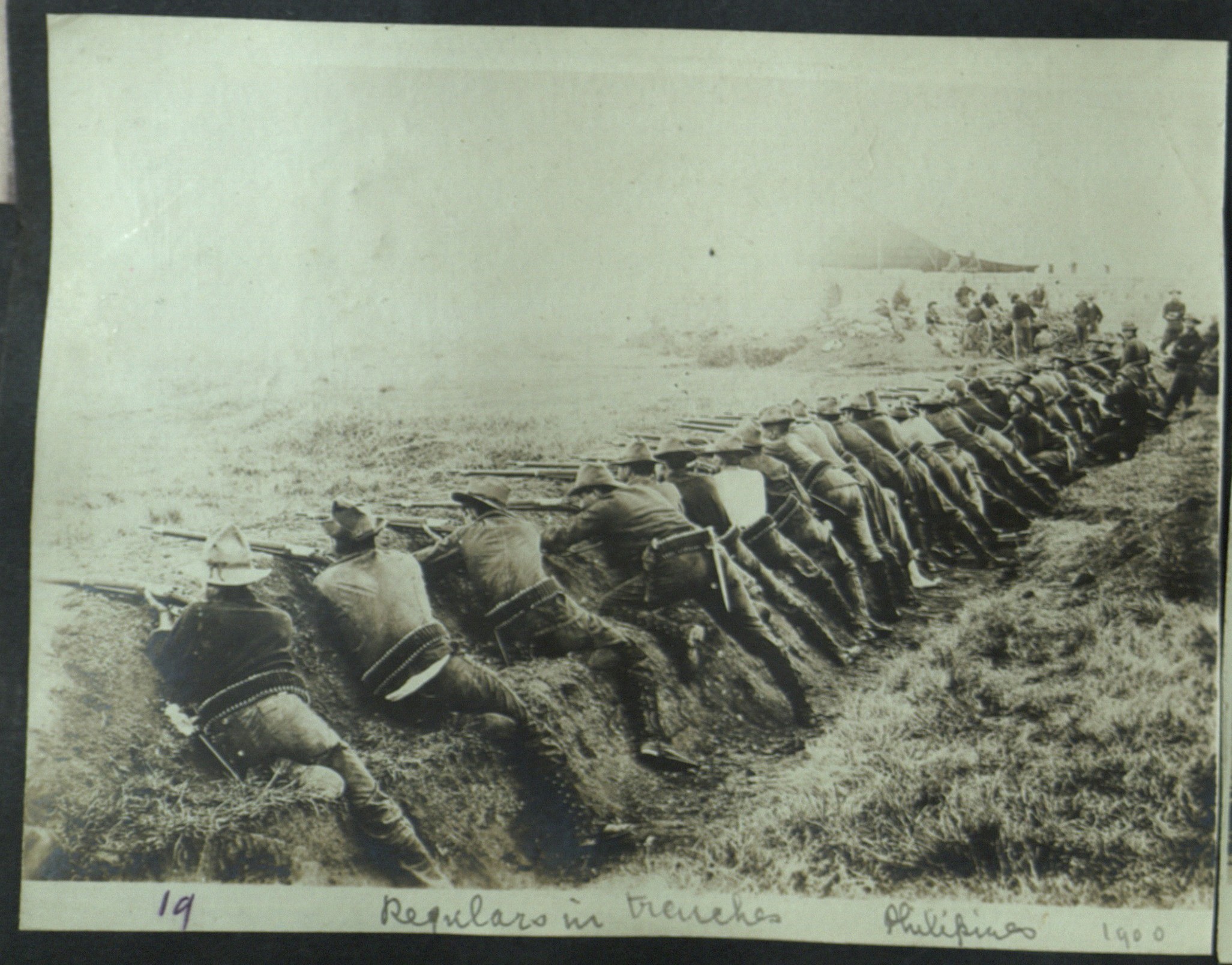



Social Sharing